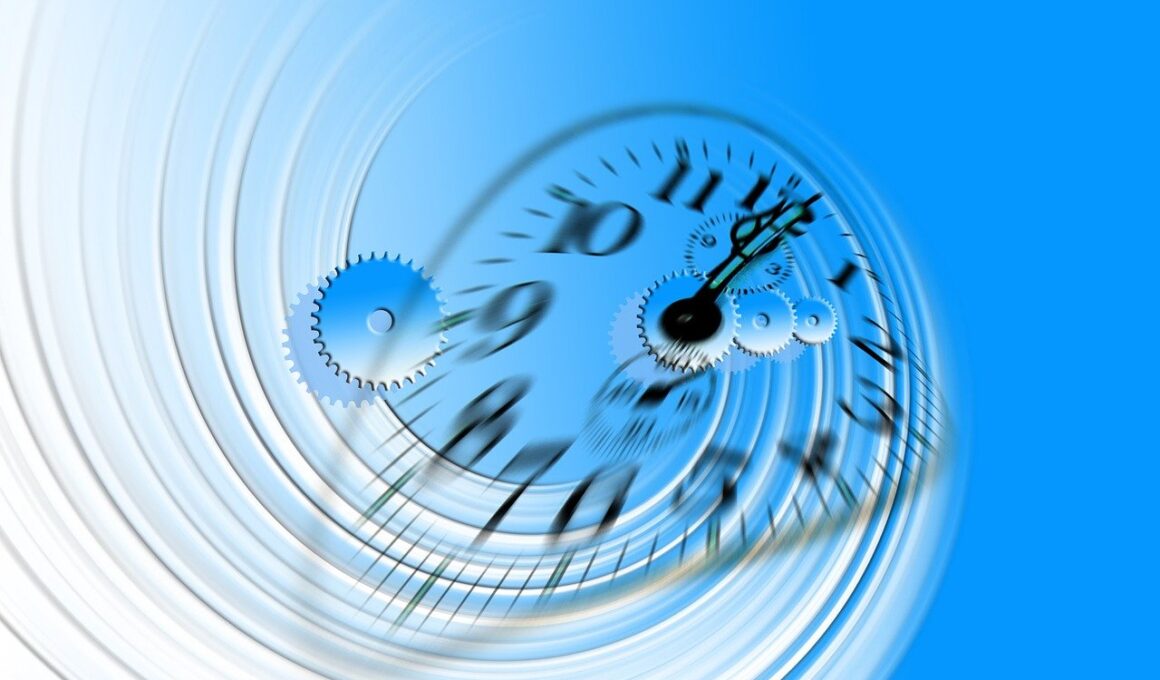How Traveling Across Time Zones Impacts Sleep and Athletic Performance
When athletes travel across time zones, they often experience disruptions in their sleep patterns. This phenomenon, commonly referred to as jet lag, occurs due to the mismatch between an individual’s internal clock and the new time zone. Such misalignment can significantly affect both sleep quality and duration. A consistent sleep schedule is crucial for maintaining optimal athletic performance. Disrupted sleep can lead to decreased alertness, impaired cognitive function, and delayed reaction times. Athletes may find it difficult to fall asleep or wake up at appropriate times, leading to fatigue during competitions. Furthermore, sleep deprivation impacts recovery times and overall well-being, resulting in increased chances of injury. Jet lag symptoms can vary from person to person, often depending on the direction of travel and the number of time zones crossed. Understanding how to mitigate these effects is essential for maintaining peak performance. Athletes should consider pre-travel adjustments to their sleep schedules to facilitate smoother transitions. Methods might include gradually shifting sleep times closer to those of the destination before departure. Other tactics and practices should be explored, which we will examine next.
Effects of Sleep Disruption on Performance
Sleep disruption due to travel can have varying effects on athletic performance. Studies have shown that inadequate rest can reduce physical capabilities, including strength, endurance, and overall stamina. This reduction in performance can often be observed in both team sports and individual disciplines. Additionally, cognitive functions such as decision-making, strategic thinking, and focus may all be compromised. A lack of sleep can lead to slower processing of information, affecting an athlete’s ability to react and respond during critical moments. Moreover, mood fluctuations due to insufficient sleep can impact teamwork and motivation levels. Athletes often report feelings of irritability and stress, leading to performance declines. To counteract these effects, athletes should prioritize their sleep hygiene and implement routines that enhance quality rest. Factors to consider include sleep environment, nutrition prior to sleep, and pre-sleep relaxation techniques. Melatonin supplementation may also be beneficial, as it helps regulate sleep cycles. Staying hydrated can contribute positively to performance, as well. Athletes must acknowledge these variables for continuous improvement and competitive success. In the next section, we will discuss strategies to combat jet lag effectively.
Strategies to Combat Jet Lag
To mitigate the effects of jet lag, athletes can adopt several strategies to enhance sleep quality and maintain peak performance levels. One effective method is to adjust sleep schedules gradually before traveling. Shifting bedtime and wake time by 30 minutes each day can help acclimate the body to the new time zone. Incorporating strategic exposure to natural light upon arrival can also regulate circadian rhythms. For instance, seeking sunlight in the morning can signal to the body that it’s time to be awake. Conversely, avoiding bright light before bedtime facilitates better sleep quality. Staying hydrated is crucial, as it helps prevent fatigue and promotes optimal physical function. Avoiding heavy meals before sleep enhances comfort and promotes relaxation. Caffeine consumption should be moderated; while it can provide temporary alertness, it may also interfere with sleep later on. Additionally, the use of sleep apps or technology such as sleep masks and white noise machines can create a conducive sleeping environment. It’s essential for athletes to experiment with these strategies to find what works best for their unique needs and routines as they adapt to new time zones.
Rest and recovery play a crucial role in an athlete’s lifestyle, particularly when addressing the challenges posed by traveling across time zones. Proper recovery protocols can significantly counteract the adverse effects of sleep disruption. Athletes are encouraged to incorporate restorative practices into their routines, such as active recovery sessions, stretching, and foam rolling, which can alleviate muscle tension. Other techniques, including meditation and deep breathing exercises, can effectively reduce stress levels and promote relaxation, contributing to better sleep. After arriving at the destination, athletes should aim to establish a consistent post-travel routine that prioritizes sleep hygiene. This may involve creating a calming bedtime environment and maintaining a regular sleep schedule despite the new time. Engaging in light physical activity can also boost energy levels appropriately. In addition, nutrient-dense meals rich in proteins and complex carbohydrates help replenish energy stores and facilitate recovery. Overall, addressing recovery is integral for athletes to maintain endurance and performance. The impacts of nutrition on sleep and athletic performance will be examined in the next section, providing insight into the relationship between the two.
The Role of Nutrition in Sleep Quality
Nutrition plays an essential role in determining the quality of an athlete’s sleep, further influencing overall performance. Consuming a balanced diet rich in vitamins and minerals supports bodily functions, including sleep regulation. Nutrients, such as magnesium, may promote relaxation and enhance sleep quality. For instance, foods like nuts, whole grains, and leafy greens can provide significant magnesium levels that benefit sleep. Additionally, optimizing nutrient timing throughout the day can prepare the body for recovery and rest. Athletes should avoid heavy meals close to bedtime, as these can disrupt sleep patterns and lead to discomfort. Instead, they can opt for lighter snacks rich in tryptophan, which aids in the production of melatonin. Examples of such snacks include yogurt, bananas, or oatmeal. Performance can also be affected by hydration levels; dehydration can significantly impair sleep quality. It is crucial for athletes to find the right balance of food and hydration for their needs and schedules, especially after long flights. In turn, nutritious diets can enhance recovery, thereby aiding athletic performance. In the next section, we will address common myths regarding sleep and athletic performance.
Debunking Sleep Myths in Sports
Various myths surrounding sleep quality and athletic performance can mislead athletes and hinder optimal training results. One common misconception is that napping can fully compensate for a lack of nighttime sleep. While short naps may provide temporary benefits, they cannot replace the restorative processes achieved through a complete sleep cycle. Athletes often think that they can ‘catch up’ on sleep during weekends, but inadequate rest over time can lead to cumulative fatigue. Another prevailing myth is the belief that everyone needs the same amount of sleep. Each individual has unique needs; some may require more sleep to recover fully, while others may thrive on less. Athletes also underestimate the timing of sleep; going to bed and waking up at consistent times enhances sleep quality. Moreover, some believe that alcohol can aid sleep, but it actually disrupts sleep architecture, leading to lighter sleep stages. Disposing of these misconceptions is essential for athletes aiming to optimize their performance. By prioritizing healthy sleep habits and taking individualized approaches, they can achieve better results overall and enhance long-term success.
Conclusion: Embracing Healthy Sleep Habits
In conclusion, athletic performance is deeply intertwined with sleep quality, particularly when traveling across time zones. Understanding the impacts of jet lag and the importance of good sleep practices can significantly enhance athletes’ abilities to perform at their peak. By implementing effective strategies to combat the drawbacks of jet lag, athletes can adapt more smoothly to new environments and maintain their competitive edge. Furthermore, recognizing the role of nutrition and debunking common sleep myths are vital steps toward fostering the optimal rest needed for recovery. Careful attention to sleep hygiene, nutrition, and adaptive strategies will enable athletes to mitigate performance declines. Encouraging healthy sleep habits promotes not only athletic success but also improves overall well-being. As athletes become aware of these principles, they can prioritize sleep as an essential aspect of their training regimen. Ultimately, this focus on recovery will contribute positively to their performance. Athletes of all levels can benefit from adopting these practices for enhanced physical readiness and mental clarity, allowing them to achieve their goals with confidence.





